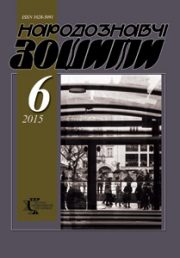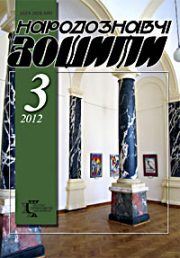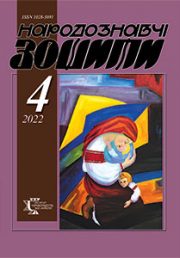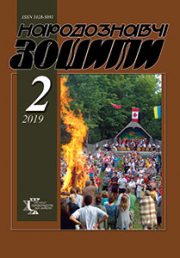The Ethnology Notebooks. 2019, № 5 (149), 1342—1357
UDK 392.51(477.86)
DOI https://doi.org/10.15407/nz2019.05.1342
KONOPKA Volodymyr
ORCID ID: https://orcid.org/0000-0003-0872-1833
Candidate of historical sciences,
Researcher of the department
of the Historical Ethnology
Ethnology Institute оf the National Academy of Sciences of Ukraine
15 Svobody ave., 79000, Lviv, Ukraine
e-mail: grafalf@gmail.com
Abstract. Wedding ritual has been often the object of ethnologist’s studies. Indeed, this ritual complex could be recorded from respondents from different ethnographic regions of Ukraine. However, at the beginning of the XXI century due to globalization processes in the life and culture of modern Ukrainian society, in fact, these customs and rituals are out of use and replaced with a more “modern”. Therefore, the fixation of local variants of the wedding ceremony becomes more relevant. In this article, the author aims to describe, according to the respondent’s testimony, the wedding ceremony in Pokuttya on the example of two villages: Dolishnye Zaluchchya of Snyatyn district and Potochyshche Gorodenka district of Ivano-Frankivsk region. The object of the research is a traditional family ritual. The subject – local variations in Pokuttya wedding ceremony. The author’s field materials are the basis of the work. The attention is drawn to the following wedding stages: matchmaking, preparation for the wedding, braiding wreath, bark, wedding, the departure of the young to the bride’s house. Posted songs accompanying ordinance.
Two entries wedding ceremony in Pokuttya was arranged by Volodymyr Konopka. In the village of Dolishnye Zaluchchya based on the memoirs of Olga Chykalyuk, and from village Potochyshche on the memoirs of Anna Semeniuk.
Keywords: Pokuttya, wedding ceremony, wedding songs and customs.
Received 20.09.2019







